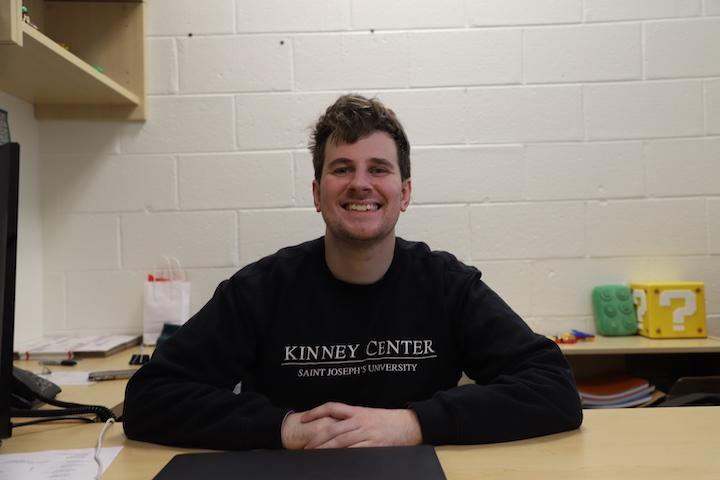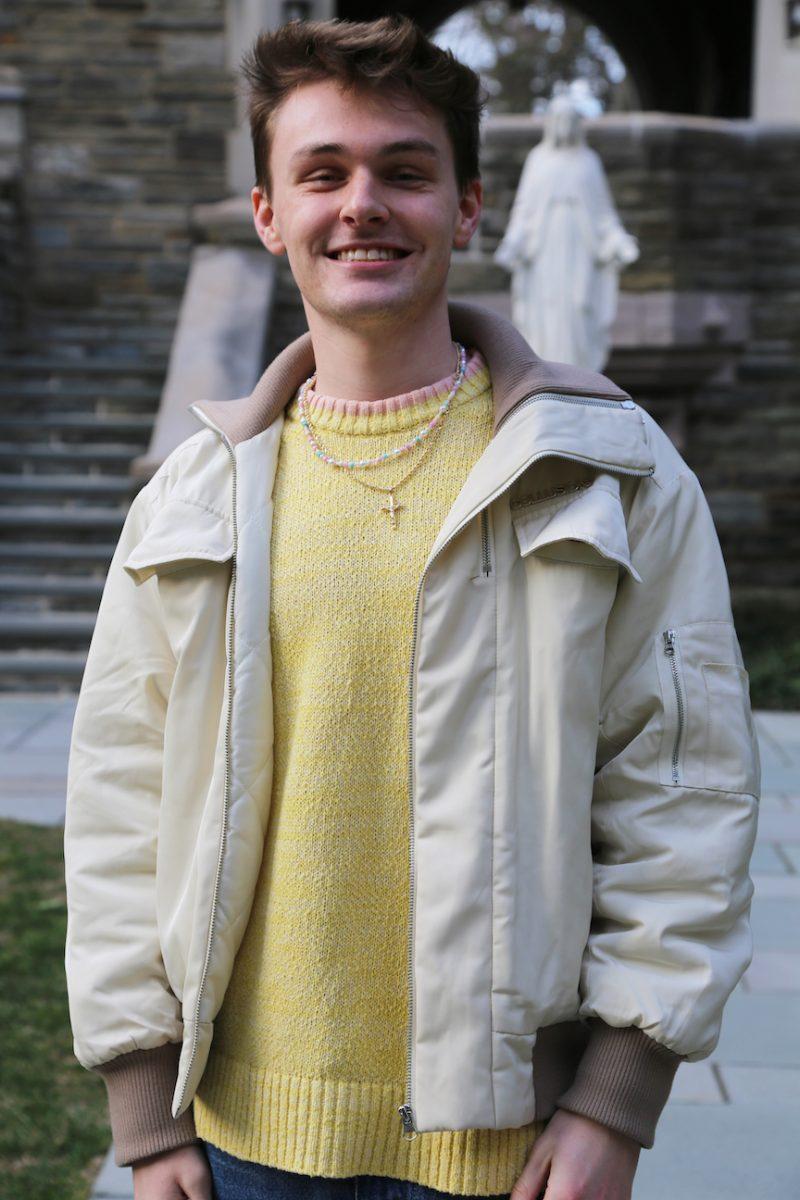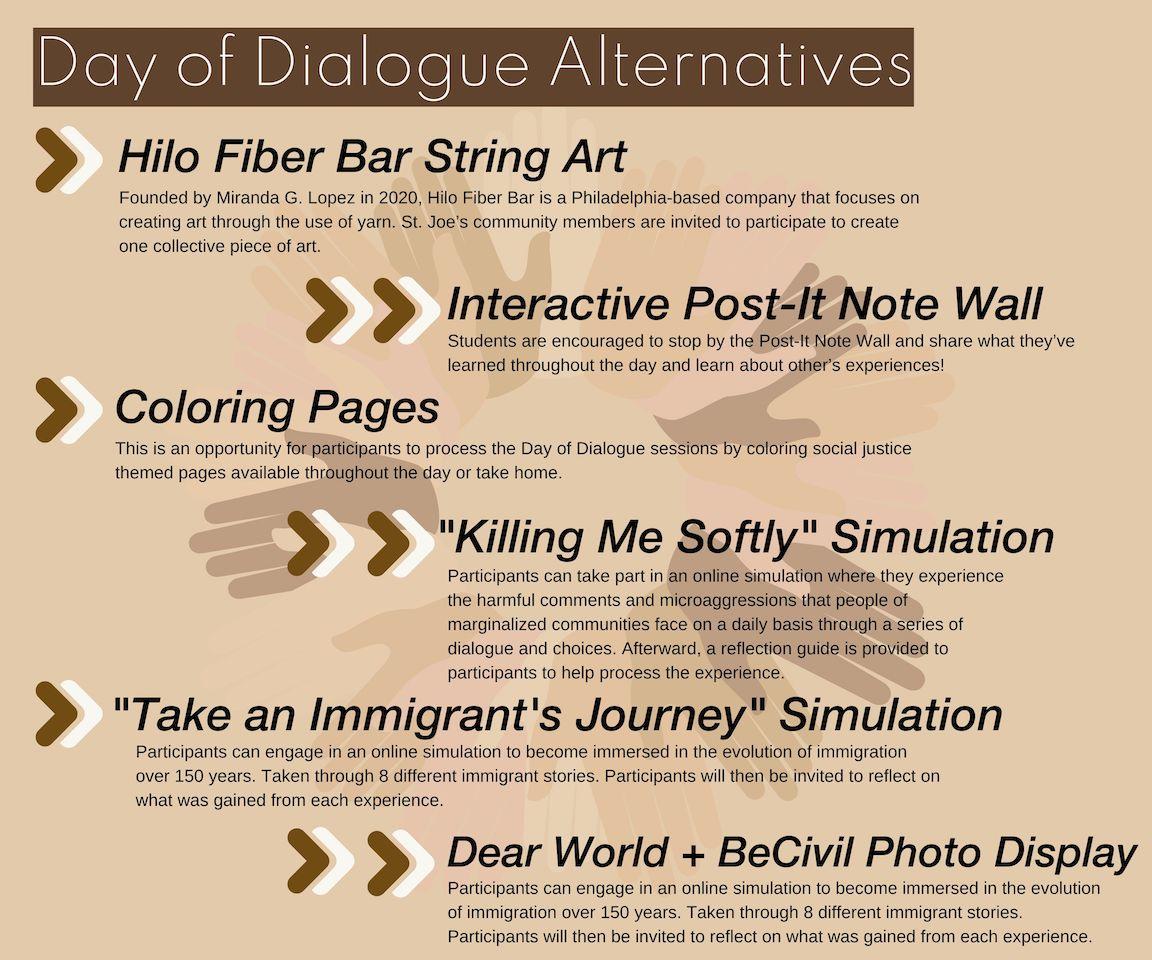Robert Haftl, M.S.W., assistant director of college support at the Kinney Center for Autism Education and Support, has a big brother vibe. He’s the kind of guy who has your back, who helps look out for you and wants you to succeed.
In fact, Haftl is a big brother. His younger sister is autistic and, as he tells his story, it’s clear how he ended up doing the work he does at the Kinney Center.
“She was diagnosed pretty early on and had to go to a special school for that,” Haftl said. “She is much more unable, in certain ways, to live life on her own and she needed to have services to help with that life adjustment. I was able to see firsthand what happened when she was identified and given the support that she needs.”
Haftl, who is from Kennett Square, Pennsylvania, graduated with a degree in psychology in 2016 and earned a master’s in social work in 2018, both from West Chester University. He said he was drawn to working with neurodiverse populations because he felt he could be a role model and provide the kinds of necessary services his sister received.
“What drew me [to St. Joe’s] was that understanding that I know a lot about autism spectrum disorder and taking what I knew as a counselor and psychotherapist and turning that into more of a case manager,” Haftl said.
Before coming to St. Joe’s, Haftl worked as a therapist for neurodiverse clients with attention-deficit/hyperactivity disorder, autism spectrum disorder and obsessive compulsive disorder.
At St. Joe’s, Haftl’s primary job is to serve as a case manager for 12 to 15 students who are in the Autism Support Promoting Inclusive and Responsive Education (ASPIRE) program, which is designed to help autistic students adapt to the college environment.
Alli Gatta, M.S., assistant director of college autism support at the Kinney Center, said Haftl is a great addition to the Kinney team.
“What really inspires me is that Robert connects with students really well,” Gatta said. “He has a lot of interests, such as Pokemon video games, different TV and movies, that really help him connect with students with autism.”
Gatta said Haftl also motivated some students in the ASPIRE program to get involved in the university’s esports club.
“I think that’s a little bit unique, and he was able to use some of his own interests as part of his job, which was really cool,” Gatta said.
In addition to being a personal interest of his, Haftl’s focus on esports is part of his research with Joseph McCleery, Ph.D., assistant professor in the department of psychology and executive director of academic programs for the Kinney Center.
“We’re doing [a] research proposal into the benefits of esports participation for students on the spectrum,” Haftl said. “We’re also looking at benefits for people who are not male, so nonbinary, trans, as well as female esports participation, to see if there’s any benefits for those populations.”
Mary Ann Newell, M.S., associate director of college support and employment services at the Kinney Center, added that Haftl played a role in helping ASPIRE students go to other types of social activities as well, such as organizing a basketball game for the students to attend last semester.
Haftl said he is grateful to be a part of the support system for students on the spectrum at St. Joe’s.
“I like to say [the Kinney Center is] trying to do things to help students with the challenges [of transitioning to college],” Haftl said. “We’re trying to give them those tools and things they need to succeed.”


















































